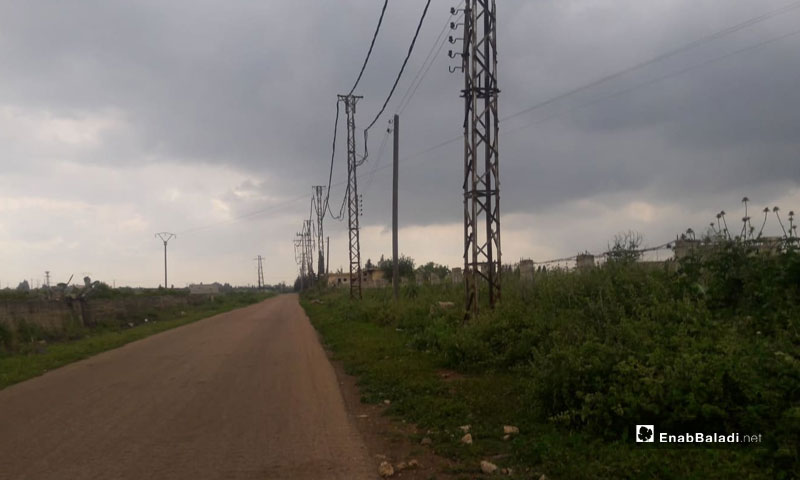



Enab Baladi – Daraa
Most farmers in southern Syria have removed their unregulated electric transformers, which were connected to high voltage power lines. This takes place after the regime consolidated its control of the area, and full authority returned to the public electricity company.
During previous years, farmers have brokered investment contracts to install transformers along high voltage power lines, in return for monthly payments of up to 50,000 SYP. Additionally, they bear the expenses for installing the transformers, and the subsequent operating costs.
Irrigation using electricity from transformers, which are connected to substations controlled by the opposition, is considered an important factor in reducing the cost of agricultural production. It is more feasible for farmers than irrigating their crops using diesel fuel, and the higher efficiency of using electricity in irrigation reflected positively in their rate of production.
A former employee of al-Ash’ari power plant in the western Daraa countryside, who asked not to be named, told Enab Baladi that there had previously been 1,000 unregulated transformers connected to the high voltage lines. These lines feed into the drinking water pumping stations, which were distributed between Tafs and Da’el. Direct contracting took place with the station’s administration, which pays the salaries of dismissed staff and conducts necessary maintenance.
“Farmers have since removed these transformers, for fear of fines that illegal operation over the past years could incur, and hoping to obtain permits for wells in the coming years,” the employee said.
Farmers investing in electricity contracts pay 50,000 SYP each month, which would be spent in a day or two if they were to rely primarily on diesel fuel.
The reasoning behind electric-powered irrigation, and reliance on high voltage lines, is the significant difference in cost and quality of production, as expressed by farmer Abu Mutassim, who used to irrigate his crops using diesel fuel during previous years.
Abu Mutassim explained that reality of access to electricity for is unfair to farmers, because it targets a limited group and benefits their production in terms of quantity and quality, and reduces their costs.
He explained that, “costs include diesel fuel, oil changes and maintenance, etc. Those costs were saved by those who benefited from investment contracts for electricity.”
Conversely, farmer Abu Diaa pays large sums for diesel fuel, as he requires a daily supply of 100 liters, at an average price of SYP 300 per liter. As such, he bears a daily cost of SYP 30,000, while those who invested in electricity from the power grid only pay a monthly SYP 50,000.
Abu Diaa added that there are other diesel-related costs late in the season, which may amount to SYP 300,000. He considers that access to electricity is exclusive to some farmers but not others, and has left tangible disparities between them.
The vast majority of farmers have resorted to installing solar panels, as an alternative to the high cost and scarcity of diesel fuel, and after removing their electric transformers.
However, this option itself can be inhibitively costly, and does not provide consistent power to irrigation networks – being operational only during daylight hours.
Solar panels have become remarkably widespread over the past two months, in preparation for the summer season. They are regarded as is the only means of protecting crops from the inevitable summer drought.
A young man named Hassan al-Mer’i used to make use of a transformer connected to the high voltage lines. He told Enab Baladi that he has since resorted to installing solar panels, after disengaging his transformers from the grid. This solution has spared him tremendous costs, after the exponential rise in fuel prices.
Despite the expenses of solar panels installation, which has cost Hassan nearly five million Syrian pounds, he maintains that they are the only available solution to preserve his year’s harvest.
if you think the article contain wrong information or you have additional details Send Correction